 Running a business is no small feat, and the importance of effective cash flow management to sustain and grow your operations cannot be overstated. Economic uncertainties, like the possibility of a recession, can be daunting, but with the right strategies in place, you can weather the storm and emerge even stronger.
Running a business is no small feat, and the importance of effective cash flow management to sustain and grow your operations cannot be overstated. Economic uncertainties, like the possibility of a recession, can be daunting, but with the right strategies in place, you can weather the storm and emerge even stronger.
Understanding Cash Flow Management
Cash flow – the movement of money in and out of your company, including revenues, expenses and investments – is the lifeblood of any business. Effective cash flow management involves tracking and optimizing this movement to ensure your business has enough liquidity to meet its financial obligations while also investing in growth opportunities.
You can’t know how to best move forward without understand how you got where you are today, so a big part of properly managing your cash flow includes analyzing your historical data. Look for patterns and identify months or seasons where cash flow is typically stronger or weaker so you can anticipate future periods of lower cash flow and plan accordingly.
With your historical data in hand, you can create cash flow projections to identify times or situations when you may run low on cash, particularly if hit by a recession. Running these scenarios will show you how your cash reserves could be impacted and give you an idea of how much to set aside so you can successfully ride out difficult times.
Preparing for a Recession
While the Canadian economy is currently beating expectations, no one knows how long this will last. Currently, Quebec is in a period of stagnation that could turn into a slight contraction in last 2023, according to economists. Economic growth will likely be minimal – somewhere near .6% overall for 2023 – which is substantially less than 6% of 2022 and 2.6% in 2021.
Even small recessions can create challenges for small and mid-size companies. Here are some proactive measures business owners should consider to be prepared for potential impacts.
Build a Cash Reserve: A robust cash reserve acts as a financial buffer during tough times. You should have a reserve that covers several months of operating expenses at all times but consider increasing this stockpile when a potential recession looms. This emergency fund can help you meet your financial obligations, pay employees, and continue essential operations if or when revenue decreases.
Reduce Discretionary Spending: Review your expenses and identify places where you can cut back without compromising core operations. Add any savings from these cuts to your cash reserves to cover mandatory expenses during lean periods.
Strengthen Customer Relationships: In difficult economic times, retaining loyal customers becomes even more critical. Focus on providing exceptional customer service, communicate openly with your clients, and explore ways to add value to your offerings and deepen these relationships.
Diversify Revenue Streams: Relying on a single revenue source can leave your business vulnerable if that business dries up. Explore opportunities to diversify your income streams, such as expanding into new markets, introducing complementary products or services, creating a recurring revenue model, or targeting different customer segments.
Renegotiate Contracts: Reach out to suppliers, landlords, and other partners to renegotiate the terms of any agreements. Often businesses are willing to collaborate during tough economic conditions, and finding win-win solutions can help ease financial burdens for both parties.
Monitor and Adjust: Continue to monitor your cash flow, comparing it to your forecasts and adjusting as needed. It is not uncommon to need to adjust your strategies as circumstances change or more information becomes available.
Preparing for Better Times
While preparing for a recession is essential, it’s equally important to position your business for long-term success, whether one hits or not. Once you have a healthy cash reserve, consider making some investments that can positively impact your operations and business as a whole.
Invest in Efficiency: We all get used to doing things a certain way, but it can be valuable to occasionally look for ways to improve operational efficiency. This could involve streamlining processes, improving your technology, and training your employees to work smarter. Even if a recession doesn’t occur, Increased efficiency can lead to cost savings and improved profitability, which all business owners appreciate.
Focus on Innovation: As much as possible, encourage a culture of innovation within your organization. Seek new ways to meet and exceed customer needs, develop unique products or services, and stay ahead of the competition. Often, the best ideas come from your employees, so ask them what they think. It can lead to improved processes and more loyal employees that feel a greater sense of inclusion.
Expand your Market Presence: As the economy recovers, explore growth opportunities in new regions or demographic segments. A well-timed expansion can lead to increased revenues and a stronger market position.
Keep an Eye on Trends: Stay informed about industry trends and emerging technologies so you can adapt your business model when possible. This doesn’t mean jumping on every bandwagon, but analyzing the market and taking advantage of ideas that make sense to create a significant advantage and competitive edge.
Cash flow management is a vital aspect of running a successful business in Quebec, especially in the face of economic uncertainty. By understanding your historical data, forecasting, and taking proactive measures, you can prepare for a recession and emerge with your business intact and potentially even stronger than it is now.

